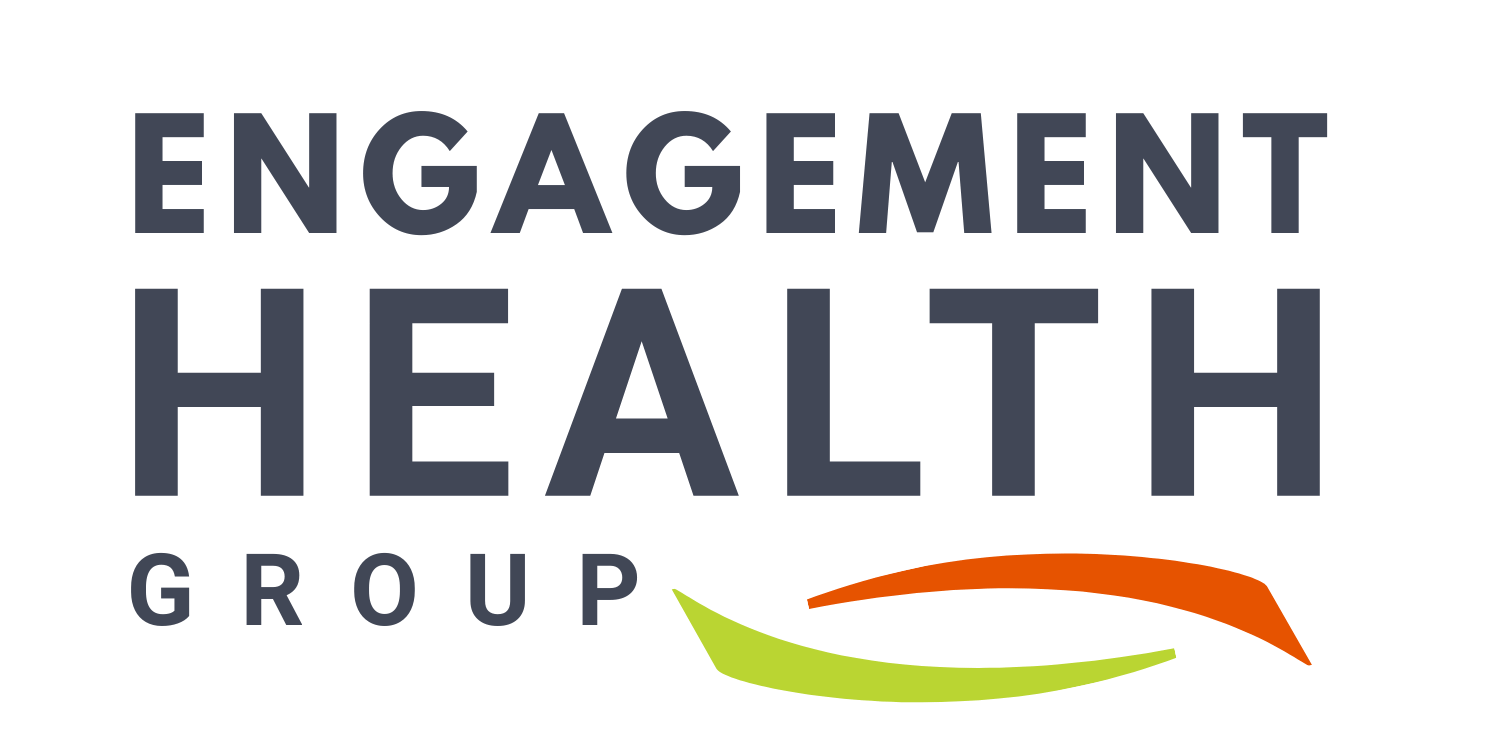Condition Management
(Disease Management)
Using Pharmacists to Form Highly Effective Care Teams for Uncontrolled Chronic Conditions
EHG offers a robust approach to condition management that leverages data from biometric screenings and predictive health analytics to identify members with uncontrolled chronic disease. An experienced health coach and a clinical pharmacist engage not only with the member, but also with the member’s personal physician to form a highly effective care team that closes gaps in care, reducing illness and medical claims.
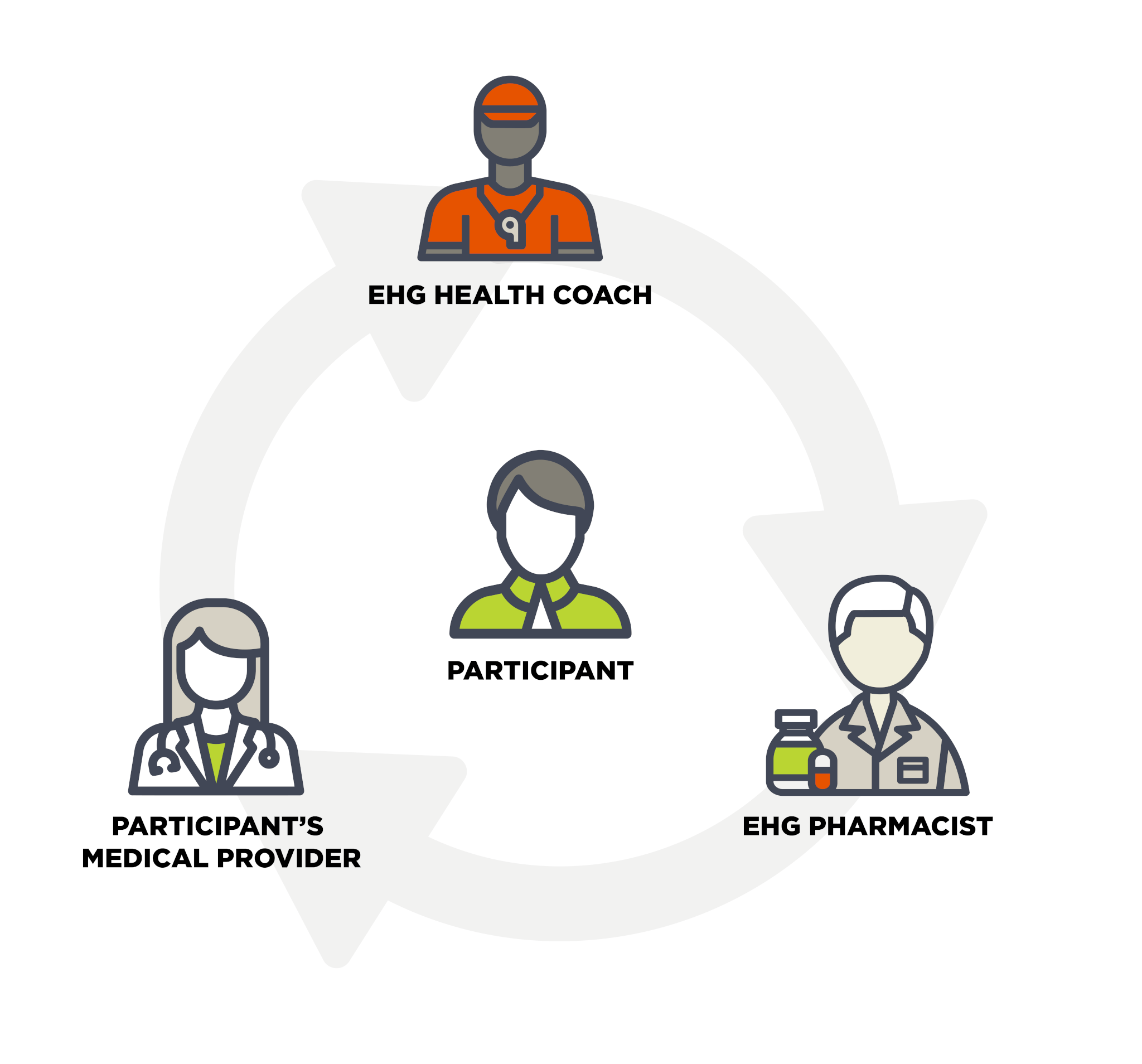
Care Team
Our model is a pharmacist-managed chronic condition management program that leverages a care team approach. It was modeled after The Asheville Project, which was a very innovative and successful approach to managing diabetes and other chronic conditions – and it has been continuously improved for over two decades, now. In this model, the pharmacist serves as the catalyst to form a personalized care team that includes the members and their personal medical providers, in addition to an EHG pharmacist and an EHG health coach, all focused on improving health and reducing risk and cost. (See Figure).
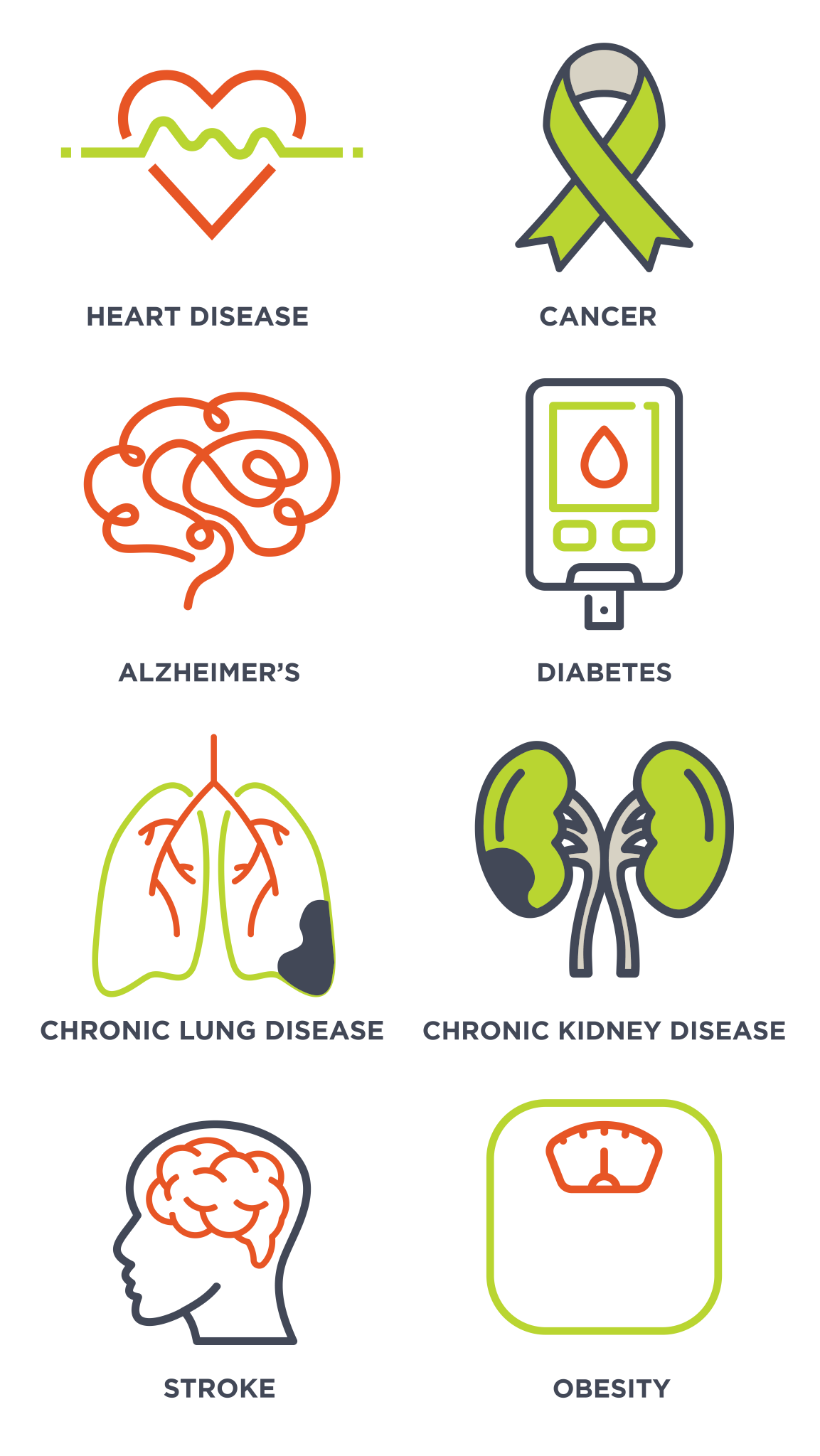
Data Driven
We leverage data from health screenings, healthcare claims, and other available health data. From the claims data, we identify members with chronic diseases such as diabetes, obesity , heart disease, and others shown in the figure. Furthermore, we normally identify and engage the members whose chronic disease is uncontrolled with “gaps in care,” to be most efficient with the risk management budget.
This member-level data showing gaps in care is based on health analytics, which can be provided to EHG by the client’s analytics partner or by the client’s broker.
Additionally, EHG collects data from a health screening, which is the best leading indicator of chronic disease. Using this data, EHG can proactively identify and engage members who may not have been to the doctor or filed any claims - but are at high risk for chronic disease. Therefore, our ability to engage 90% of the population in a health screening provides tremendous value into the ticking time bombs that are not showing up in claims yet.
The health screenings and analytics are essential tools to help avoid and/or minimize the impact of chronic disease. The high-risk members from our analysis and stratification are then assigned to an EHG health coach and a pharmacist, who works with each member’s Primary Care Providers.
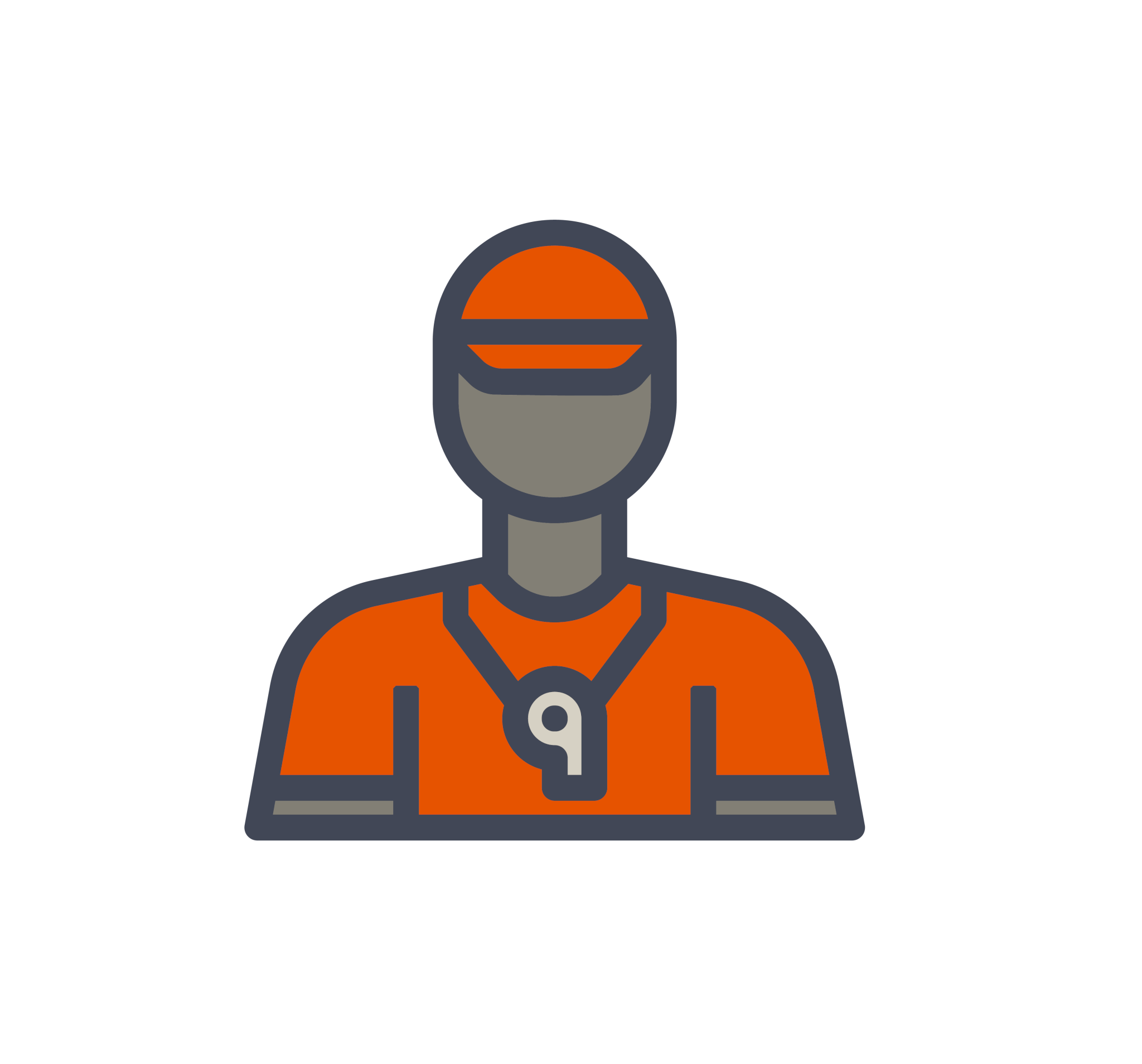
Behavioral Health Coaching Foundation
Our Condition Management solution is built on a foundation of monthly Behavioral Health Coaching sessions of 30 minutes each to help members get their conditions managed well. The behavioral health coach is responsible for working with the participant on support, self-care, and behavior changes that impact the member’s conditions.
Please see our web page on Behavioral Health Coaching to understand how this engine drives behavior change for healthier lifestyle habits.
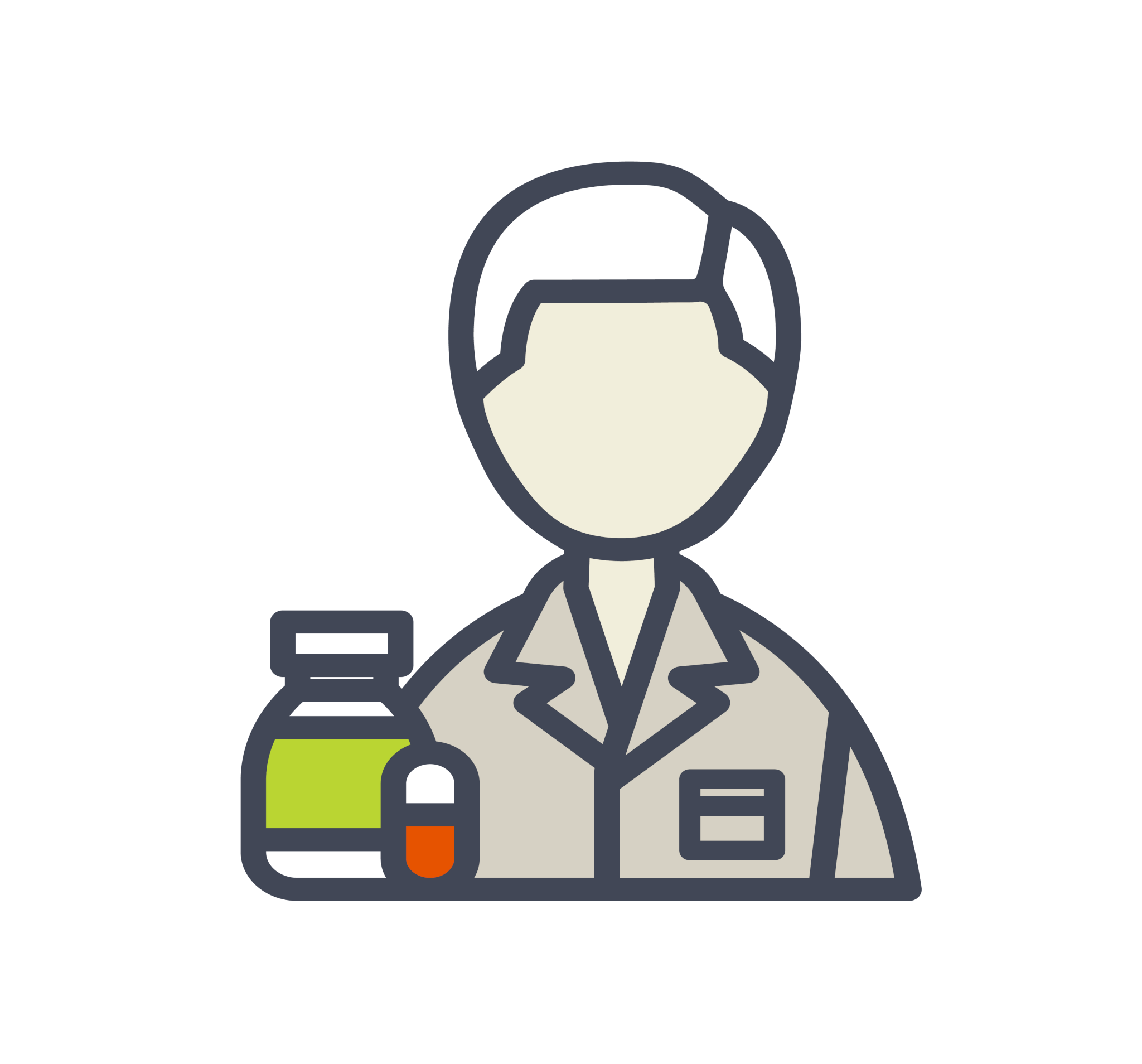
Clinical Pharmacist Oversight
When a health coach calls a participant’s PCP, they typically don’t answer. However, when our clinical pharmacist calls the PCP, they do! That enables the pharmacist to be the catalyst to form a care team with the PCP, the participant, and the Health Coach.
The Clinical Pharmacist’s goal is to fill the gap between the participant and the prescriber to ensure that medications prescribed are optimally meeting the needs and goals of care. To achieve this, we believe it is important to develop an individualized, patient-centered plan in collaboration with health care providers that is evidence-based and cost effective. Through pharmacotherapeutic review, our pharmacist:
- Evaluates appropriateness to the participant’s medications
- Identifies and resolves medication-related problems
- Offers therapeutic recommendations to optimize medication regimens
- Promotes compliance techniques
- Provides education to the provider and the participant about medications and how they impact overall health and wellbeing.
The EHG care team is much more effective in managing all aspects of chronic disease than what a PCP can do in a 7-minute office visit. The clinical pharmacist is responsible for working with the health coach, the participant, and more importantly the patient’s personal physician to provide disease management and medication therapy management - by providing observations and suggestions to the provider to get the condition or conditions quickly under control.
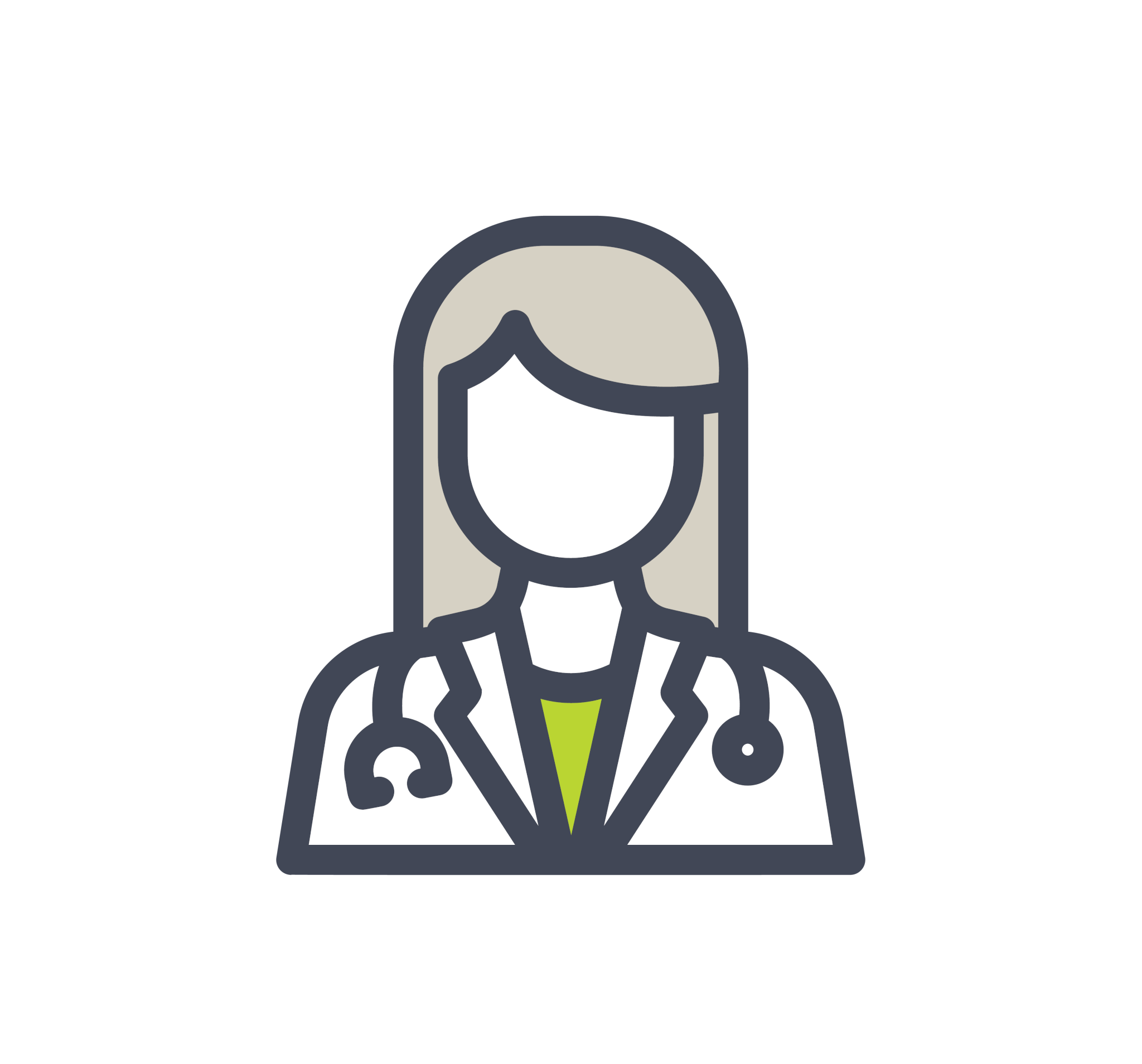
Primary Care Providers
The PCP is in the driver’s seat for the patient’s medical care. The PCPs that work with EHG gain valuable insights from all the information that EHG collects and communicates to the PCP on a monthly basis.
EHG pharmacists will provide insights and information to the provider between patient visits regarding things like:
- Lifestyle choices that impact the disease
- Goal progress
- At-home monitoring
- New symptoms or issues
- Monitoring of medications and/or conditions
- Identified gaps in medications
The result is that our Condition Management improves outcomes, reduces avoidable office visits, ER visits, complications, and more - all while keeping the patient-provider relationship intact and empowered!
